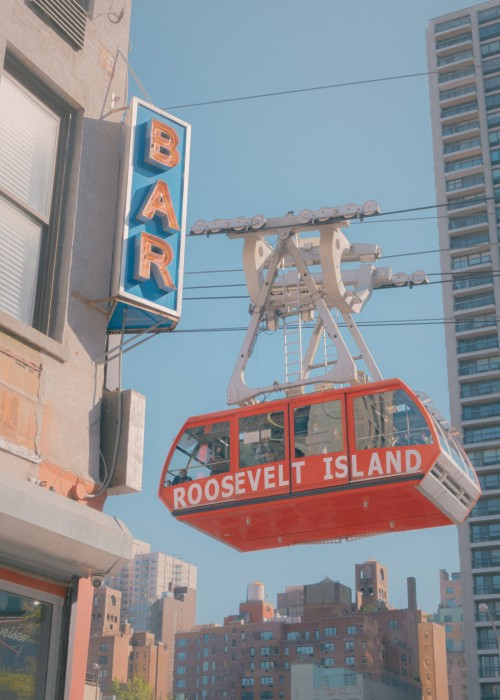
My latest column for @Locusmag is "Moneylike," about the relationship between money, liabilities and coercion:
locusmag.com/2022/09/cory-d… 1/
locusmag.com/2022/09/cory-d… 1/

If you'd like an essay-formatted version of this thread to read or share, here's a link to it on pluralistic.net, my surveillance-free, ad-free, tracker-free blog:
pluralistic.net/2022/09/16/non… 2/
pluralistic.net/2022/09/16/non… 2/
For years, economics textbooks have included a "money story": once upon a time, we bartered, trading chickens for cows. This was hard. If the going rate is 8 chickens for a cow and you only need 6 chickens, how could the chicken farmer make change? 3/
The answer was gold, variously said to have been chosen for its rarity, or its divisibility, or its shininess, or the ease of working such a soft metal. 4/
Whatever the reason, these anonymous prehistoric traders all agreed that gold would be our medium of exchange, our store of value and our unit of account.
This story was handed down to generations of economics students, despite the fact that there is no evidence for it. 5/
This story was handed down to generations of economics students, despite the fact that there is no evidence for it. 5/
The basis for this story was pure reasoning: "What circumstances *could* have given us money?" 6/
This kind of thought-experimental reasoning is endemic to neoclassical economics, as Ely Devons joked: "If economists wished to study the horse, they wouldn't go and look at horses. They'd sit in their studies and say to themselves, 'what would I do if I were a horse?'" 7/
But as far as anyone can tell, this is *not* where money came from. Rather - as @DavidGraeber wrote in his seminal "Debt: The First 5,000 Years" - the origin of coin money is in the need of conquering states to provision themselves. 8/
To feed soldiers garrisoned in imperial territories, emperors imposed a tax on farmers, that had to be remitted in the coins that soldiers received in pay. 9/
Farmers who didn't pay their taxes faced terrifying, violent consequences and were therefore willing to sell their produce to soldiers in exchange for those coins. 10/
Money, therefore, arose out of liability: farmers valued coins because they had a nondiscretionary liability that could only be settled with those coins (their taxes). 11/
People who *weren't* farmers would also accept coins, because they knew that the farmers needed them, and since they needed to trade with farmers, anything the farmers would accept was therefore valuable to all. 12/
This money story is a lot more morally fraught than the story of gold arising spontaneously out of the need to give back change for a cow. It involves gross acts of coercion. It's kind of nice to think that money arose spontaneously out of free trading, but it didn't. 13/
Over and over in history, we see examples of money emerging through the need to settle a nondiscretionary liability. If there's something you need and you can only get it by acquiring a certain token, that token becomes money to you. You will do work for that token. 14/
If *lots* of people need that token, it becomes money for them. If enough people need a token, almost anyone will accept it in payment for almost anything, because someone else will accept it from them.
Now, some nondiscretionary liabilities are still more-or-less voluntary. 15/
Now, some nondiscretionary liabilities are still more-or-less voluntary. 15/
If you want to defeat an ogre and the wizard of the woods will only give you the magic sword if you bring her 11 enchanted mushrooms picked on a moonless night, the money-ness of the enchanted mushroom is still grounded in voluntary trade. 16/
But mostly, money-ness comes about as the result of someone with more power than you demanding something of you. 17/
Take the hut-tax: in the early 20th century, British colonial rulers in the conquered lands of Africa demanded that each person owning a hut pay a tax in shillings. If you didn't pay your hut-tax, British soldiers would burn your hut down. 18/
This was an effective means of getting conquered Africans to take on brutal plantation duties - all you had to do was offer payment in shillings and anyone with a hut would line up to do your job for you. 19/
The idea that money comes from liabilities was popularized by @wbmosler, the progenitor of #ModernMonetaryTheory. 20/
In Mosler's lectures, he illustrates the point by asking, "Who will stay after the lecture to stack chairs and mop the floor, in exchange for one of my business-cards?" 21/
When no one raises their hand, he adds, "What if I told you that there was an armed guard at the door and if you don't give him a business-card, he won't let you leave?" Of course, every hand shoots up.
Mosler's door-tax turns his cards into money. 22/
Mosler's door-tax turns his cards into money. 22/
By showing us where money comes from, Mosler answers lots of seemingly imponderable questions, like "Why do I spend so much time chasing meaningless pieces of paper?" (because if you don't have the paper, something bad will happen to you). 23/
He also answers the question, "How do they always seem to find $778b for the military? Where did the $3.4T in covid relief payments come from? Won't we all have to pay a lot of taxes to repay those debts?" 24/
The "debt" of money-issuers is nothing like the debt of money-*users*. If Mosler owed an audience member a thousand business cards, he could just order them from the printer. He doesn't have to stack chairs and mop the floors to earn his own cards. 25/
He's the source of the cards. No matter how many cards he owes, he can always pay.
Which is not to say that the number of cards Mosler hands out doesn't matter. 26/
Which is not to say that the number of cards Mosler hands out doesn't matter. 26/
If there are too many cards, he'll end up stacking his own chairs - because there will be so many cards in circulation that tonight's audience will be able to get them surplus from last night's. 27/
If there are too few cards, he'll end up with all his chair stacked but he'll still have a room full of people who don't have business cards and can't leave without getting shot by the armed guard (this is also called "unemployment"). 28/
This is what people mean when they say "government budgets aren't like household budgets." Governments don't have to "balance their checkbooks." 29/
They *do* have to balance their economies, lest they create inflation (by attempting to buy more than is for sale) or unemployment (by spending so little that no everyone is able to find work). 30/
Governments can't make *things* on demand, but they can make *money* whenever they need to.
Governments can impose nondiscretionary liabilities on the people who live in their borders - they can tax them. 31/
Governments can impose nondiscretionary liabilities on the people who live in their borders - they can tax them. 31/
It is this tax - this liability that you can only pay in the government's money - that makes money into money. 32/
Now, obviously, governments aren't the only entity that produce a token that acquires moneylike properties because there's something some needs - or just badly desires - that can only be acquired using the token. 33/
If you went to a county fair this summer and bought tickets for the midways rides, you experienced a moneylike token. It's possible that the kids in your company were willing to trade labor for these tokens ("I'll do your chores if you give me five tickets"). 34/
You will also have doubtless seen that as the day drew to a close and the desirability of getting on a ride declined, so did the moneyness of the midway tickets. 35/
The midway owners don't mind. They don't need to you return your midway tickets so they can sell them anew the next day. When you hand a carny five tickets to ride a wild mouse coaster, they tear them in half and throw them in the garbage. 36/
This is also what the federal government does with our taxes - just zeroes out that amount on a spreadsheet - governments don't spend our tax dollars, they make new dollars, just like midways hand out new tickets. 37/
Which brings me to cryptocurrency. One thing even crypto boosters will affirm is that there is very little for sale in cryptocurrency. Pretty much the only thing you can buy with crypto is other crypto (and crypto-adjacent things like NFTs). 38/
If you want to buy a house with crypto, you need to find someone who'll give you dollars for it, first. Even drug dealers - made wary by the privacy problems with permanent public ledgers - are loathe to accept crypto these days. 39/
This makes crypto very un-moneylike and it is responsible for a general lack of liquidity in crypto markets. Recall that even non-farmers would accept imperial coins as payment, because they needed the things that farmers had. 40/
People outside the crypto world are monumentally disinterested in accepting crypto for anything. Even Tesla bailed on its plan to sell cars for crypto. Hell, even the Bored Apes hamburger shack stopped accepting Bored Apes coins in exchange for hamburgers. 41/
There is one nondiscretionary payment you can *only* make with crypto: ransomware payments. 42/
Once your computer (or your pipeline or hospital or city or school district's computer) has been infected with ransomware, you *must* buy crypto with dollars, or you lose all your data. 43/
We can think of ransomware as the hut tax of crypto - a coercive liability that creates a baseline of liquidity for crypto tokens.
But there's a plan to create a bunch more nondiscretionary liabilities that can only be settled with crypto: #web3. 44/
But there's a plan to create a bunch more nondiscretionary liabilities that can only be settled with crypto: #web3. 44/
Remaking the web so that every click comes with a crypto price-tag is billed as a way of eliminating the need for ads and the surveillance that comes with it. 45/
I'm skeptical of this - as John Deere, Apple and other companies have shown us, even if you pay for the product, you're still the product:
pluralistic.net/2021/11/14/sti… 46/
pluralistic.net/2021/11/14/sti… 46/
Whether or not web3 advocates sincerely believe that adding a price-tag to every part of the web will make it free of ads, there's one effect it will *absolutely* have: it will create a tax on the web that can only be paid in crypto, which will make crypto more moneylike. 47/
Image:
Corey Coyle
commons.wikimedia.org/wiki/File:Sauk…
CC BY 3.0
creativecommons.org/licenses/by/3.… 48/
Corey Coyle
commons.wikimedia.org/wiki/File:Sauk…
CC BY 3.0
creativecommons.org/licenses/by/3.… 48/
• • •
Missing some Tweet in this thread? You can try to
force a refresh


















